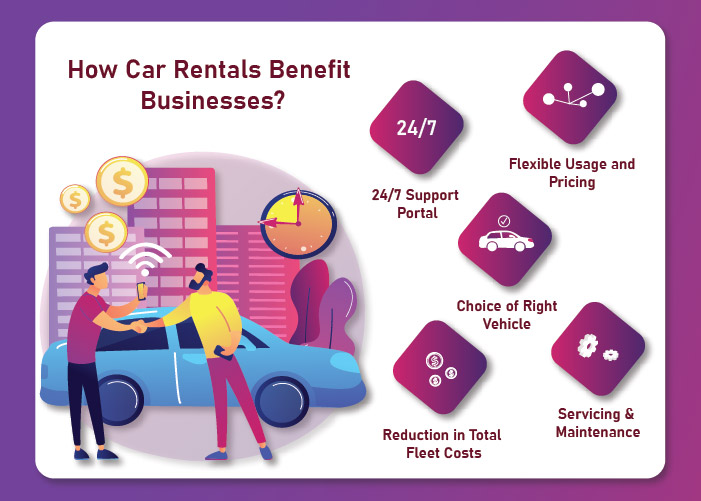New News For Choosing A Car Rental Website
New News For Choosing A Car Rental Website
Blog Article
What Is The Coverage Of Rental Insurance When Renting The Vehicle
You should review the options and insurance coverage provided by the rental agency to make sure you're protected and don't have to pay for unnecessary expenses. Here's how to effectively examine the insurance coverage while renting a car: Understand the basics of coverage: Begin by understanding what insurance coverages are included in the rental agreement. The majority of rental companies offer basic liability coverage, which will cover damage to property belonging to third parties and bodily injuries in the event of an accident where you're at the fault. However, this insurance may be subject to deductibles and limitations.
Take into consideration additional insurance options. Rental companies offer additional insurance options that protect you. The most popular kinds of coverages are Collision Damage Waiver and Loss Damage Waiver. They can will reduce or even eliminate your financial responsibility when you damage the vehicle rental.
Examine the Coverage Limits and Deductibles. Examine each insurance policy's coverage limits and deductibles. Calculate the maximum amount that the insurance company will cover in the event of a damage or loss, as well as the amount you'll be accountable for paying out in cash (deductible) before insurance coverage applies.
Personal Insurance: Determine whether the auto insurance policy you have on your own or credit card provides coverage for renting cars. If you use your credit card to pay for the car rental, certain cards also provide insurance coverage. Similarly, your personal auto insurance policy may provide coverage for rental vehicles, but the coverage amount varies according to your policy and the insurance company.
Assess your risk tolerance. Before deciding whether you should purchase additional coverage be sure to consider your financial circumstances and risk tolerance. In addition, purchasing insurance may be beneficial when you are concerned about damage or theft to the rental vehicle and want peace-of-mind. You may decide to opt out of the insurance options offered by rental companies if you have enough coverage.
Inquire about Exclusions as well as Other Exclusions. Inquire about any exclusions or exceptions within the policy like restrictions on off-roading or the use of the vehicle commercially. In order to avoid any unpleasant surprises, be sure you are familiar with the terms and conditions of the insurance.
Document Damages: Before settling an automobile rental, examine it thoroughly for signs of wear and tear. Make sure you take photos or videos to prove the damage. This will help you avoid being held responsible for any damage that you could have caused before you returned the vehicle.
If you thoroughly study the various options and insurance plans that the company you are renting from, you'll be able to make educated choices that will guarantee you have the right protection during your rental while minimizing unnecessary costs. Read the best Rent Cars Around the World advice for blog info including exitic car rental, extioc car rental, places to rent a car, rent a car one way, car rental and prices, car hire sports car, driving a rental car, hire car to airport, rent a car mercedes, extioc car rental and more.
How Do You Check The Car For Any Damages Or Wear And Wear And
It is essential to examine the car for evidence of wear and damage prior to accepting the vehicle. This will enable you to avoid being held liable for existing issues at the time of your return. For a thorough inspection, follow these steps:
After that, take a careful walk around the outside of the vehicle, and look for any damages, like scratches, dents or small dings.
Special attention should be given to areas such as bumpers as well as doors fenders, mirrors and other parts that could easily be damaged.
Check for chips or cracks on the windshield.
Check the undercarriage of the vehicle for indications of leaks or damages.
Interior Inspection:
Inspect the inside by opening all the doors as well as the trunk.
Examine the seats, upholstery and carpets for stains.
Check all adjustments to the seat, including the driver's seat to make sure they work properly.
Examine the dashboard, the steering wheel and the other controls for any damage or malfunctions.
Check out the state of HVAC systems, air conditioning systems, and ventilation.
Check the sound, lights signals as well as other electronic devices.
Functional Inspection
Check the engine and for any warning lights or error message displayed on the dashboard.
Check that the brakes, the clutch and accelerator (if appropriate) All are working properly.
To ensure that your headlights, high beams brake light, turn signal are working You can test them by switching on the lights.
Test the windshield washers. washer liquid, horn, and emergency/parking brake.
Document all damage:
To record any damage you have, make use of the rental agreement form, or the smartphone app provided by your rental company.
Photograph or record videos of your car from various angles, focusing on areas with signs of wear and wear and tear.
Notate the location and size, as well as the severity and the type of damage for every scratch, dent, or other damage.
Make sure to bring any damage that is present to the attention of the rental company's representative before you accept the car.
Report Damage:
Inform the agent at the rental agency of any damages you may have found during the inspection.
You can ask them to provide a copy or the inspection report as well as document the damages in their files.
Ensure that both you and the representative from the rental company sign the rental agreement form or inspection report to acknowledge the damage that has occurred.
Avoid liability through these measures and thoroughly inspecting the vehicle for signs of wear or damage before accepting it.
How Should You Approach The Terms Of The Return Of Your Rental Car?
When reading the conditions and terms for returning your rental car be sure to take into consideration a number of elements to ensure a simple and stress-free return. The following are important points to remember: Drop-Off Location: Check the drop-off address in the rental agreement. Return the car to the agreed-upon location by the rental agency. Certain rental companies have several drop-off points like airport terminals, rental offices or even rental stations, which is why it's important to verify the exact location.
Check out the return time specified in the rental contract. Rental companies specify a specific date and return time for automobiles. The car must be returned by the deadline specified to avoid incurring penalty or fees for late return.
Penalties for Late Returns: Read the rental company's policy regarding late returns and any penalties associated with them. If you return the vehicle later than the time specified for return may result in late fees, further fees or penalties. Some rental companies charge full rental rate per day for late returns.
Discuss your options to extend your rental. Depending on the availability of rental cars and any additional charges the rental company may permit you to extend the period. If you're in need of an extension, you must contact the rental company in advance.
Return Condition Requirements: Familiarize your self with the conditions to return a car rental in good working order. Rental agreements generally stipulate that the vehicle must be returned as it was when rented. You should take note of any specific directions regarding cleaning or removing items from the vehicle.
The Vehicle Should Be Inspected When it is returned. Before you return the car to the business, you should perform an extensive inspection. Look for any issues or damage that has occurred during the rental period. Document any new issues or damage and bring it to the attention of the representative of the rental agency.
Return Process: Get familiar with the return procedure and any paperwork or procedures that are required for the return of the rental vehicle. Follow the directions of the rental company when you return keys and paperwork. You will also receive a receipt of your return.
Take note of these aspects when returning the car and review the conditions of the rental agreement to ensure that you have met the terms of the rental agreement. This will allow you to avoid any penalties or issues.